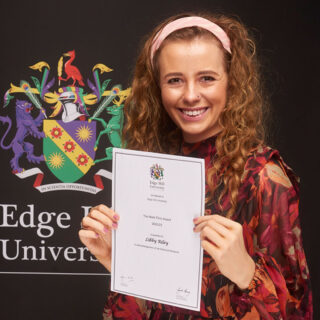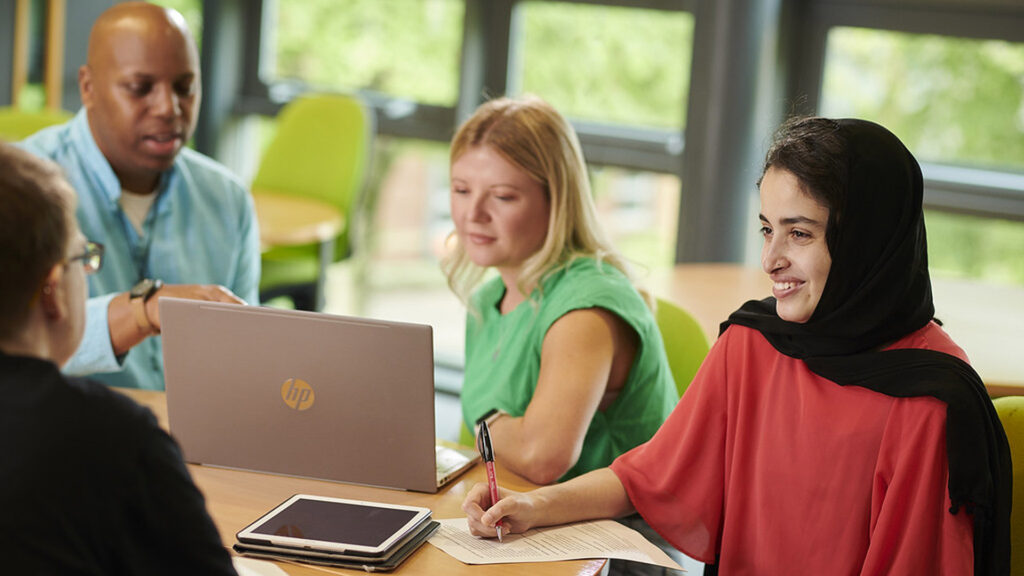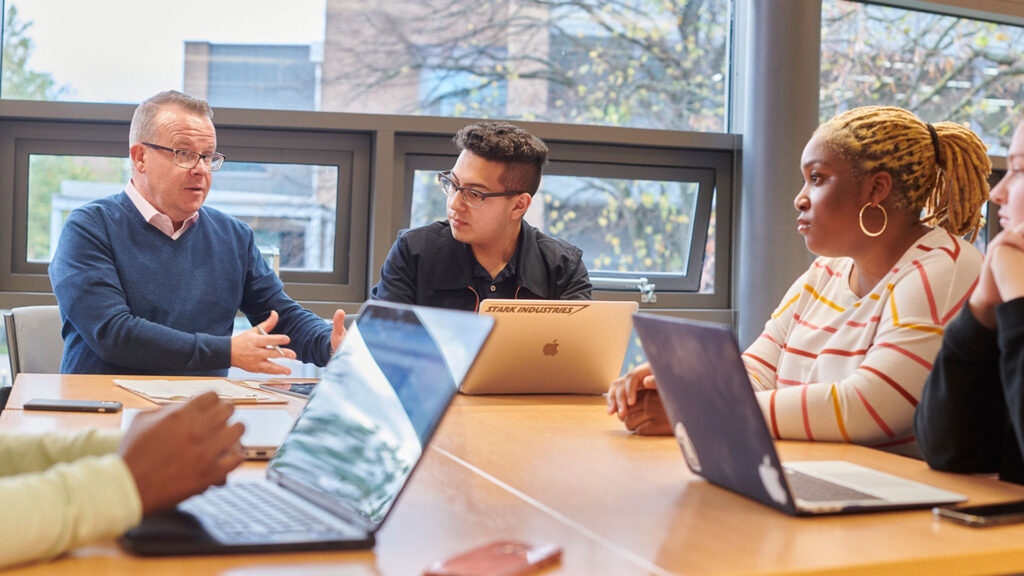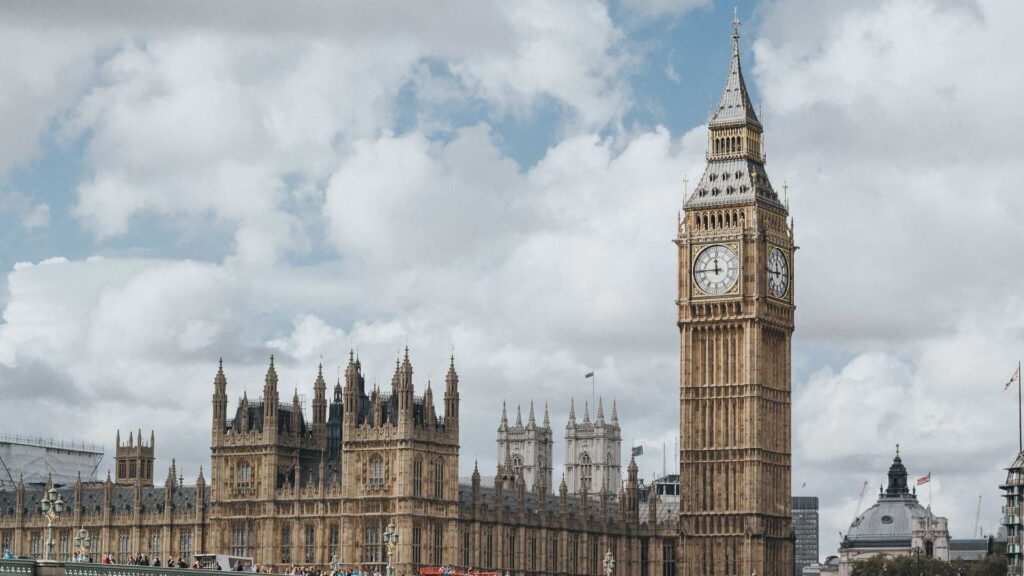History BA (Hons)
UCAS code: V101
Want to study modern history without leaving behind the insight that medieval and early modern history provides? You’ve come to the right place. Our history degree offers the perfect balance of diverse and enticing modules while enhancing your employability skills.
Overview
| Course length: | 3 years full-time 6 years part-time |
|---|---|
| Start dates: | September 2025 September 2026 |
| Location: | Edge Hill University |
| Example offers: | BBC-BBB (A Level) or DMM (BTEC) View full entry criteria |
| Subject(s): | History |
| Faculty: | Arts and Sciences |
| Department: | History, Geography and Social Sciences |
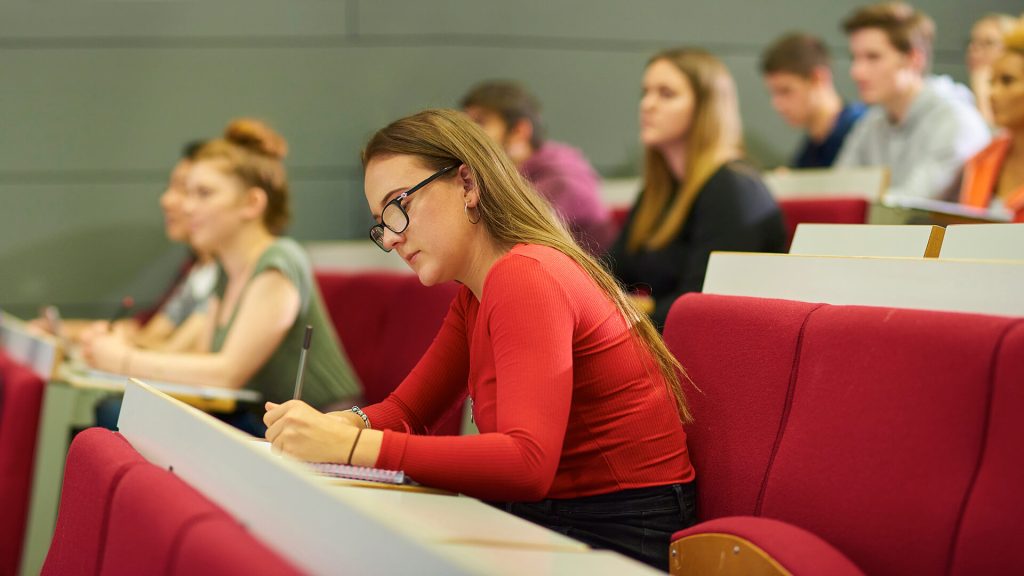
Our BA (Hons) History degree focuses on world history from the Medieval era, through to the late 18th Century and early 21st Century, mainly in Britain, Europe, the USA and Asia. Throughout the course you’ll explore early modern England, as well as topics such as the rise of the USA, the history of crime and punishment, the Viking world, and the evolution of the Zionist/Palestine conflict.
With lots of modules to choose from in years two and three, you’ll develop a deep subject knowledge and importantly, be able to connect it with the world we live in today. You’ll get the opportunity to take part in a community project, undertake field trips, and write and produce a video documentary.
Your tutors’ research has been judged to be ‘internationally important’ in successive Government evaluations of research quality in universities, and this feeds straight into their teaching. You’ll learn to conduct research, analyse complex information, and craft a complex argument, making you an independent, confident and employable graduate.
Course features
-
International students can apply
-
Learn a language option available
-
Sandwich year option available
-
Studying abroad option available
-
Work placement opportunity
What you'll study
In Year 1 you’ll learn the foundations of history. You’ll study the impact of political and social movements such as Communism and Nazism. You’ll be introduced to medieval and early modern history, enhancing your understanding of what ‘modern’ history really means. You’ll look at key developments that transformed Europe between 1789 and 1919 and will be supported to acquire the necessary tools, skills and methods to become an independent researcher.
In your second year, you have a wide range of modules to choose from. You might study an introduction to contemporary French history, representations of childhood in historical popular culture or postcolonial world order. You will use the skills and knowledge you have developed in a placement or public-facing project of your choosing. This might involve working in a museum, gallery or school. Or it may involve working on an independent project such as a social media account, lesson plans for a specific group, or writing a magazine article. You’ll also get the chance to become a Digital Detective, where you develop advanced digital research and archive skills.
Enjoy the freedom to shape your studies in Year 3. You’ll have the opportunity to design and develop an independent research project on a topic of your choice. This could be in the form of a written piece of work, a video documentary, or a public history project portfolio. The history project portfolio will enable you to collaborate with a history-related organisation outside of the university. With a wide choice of modules, you could study the special relationship between Britain and the US, black life and black protest in the US, crime and society in Britain, the Vikings, or the origins and development of British rule in Palestine.
How you'll study
The programme has been carefully designed to ensure that you develop your confidence, knowledge and skills in a gradual way and in a highly supportive environment. Your taught sessions will be complimented by regular contact time with your Personal Tutor, during which you can discuss, and seek advice about, your overall progress and plans for the future. We also have an open door policy, so that you can have easy access to academic staff outside the classroom. We see our relationship with you as one in which we work together to help you succeed.
You will have access to the latest History resources that will support your learning. You will be able to read newspapers and journals online from the eighteenth to the twenty-first centuries, consult the latest journals, and use websites that are created to support each topic. You will also be taught to use sophisticated digital research techniques.
How you'll be assessed
The focus in all assignments is on analysis and argumentation. These skills will be assessed using a variety of different exercises including essays, book reviews, primary source analysis, presentations and contributions to online discussions.
A minority of modules also have exams, however in the first year these never account for more than 30% of a module mark, with this rising to a maximum of 50% in the second and third year.
In the final year of your degree a great deal of emphasis is placed on individual research-based content, giving you a greater freedom and flexibility to shape your studies.
Who will be teaching you
You will be taught by a team of experienced and enthusiastic teachers, who research and write History. They actively participate in debates in the media, as well as act as consultants in a wide range of areas, including contributing to the development of online archives at the British Library.
They are at the cutting edge of the subject and will share with you their ideas and new interpretations in a wide range of topics. In the most recent Government assessment of the research conducted in universities, more that 50% of the work and public-facing activities of the historians at Edge Hill University were judged to be either ‘world-leading’ or ‘internationally excellent’. You will be working with historians who have achieved those standards.
Optional modules provide an element of choice within the course curriculum. The availability of optional modules may vary from year to year and will be subject to minimum student numbers being achieved. This means that the availability of specific optional modules cannot be guaranteed. Optional module selection may also be affected by timetabling requirements. Some restrictions on optional module choice or combinations of optional modules may apply. In addition to the optional module choices listed, it may also be possible to apply to study an alternative 20-credit module in Year 2 and/or Year 3, chosen from outside the course curriculum. Some restrictions on this elective module choice may apply.
Entry criteria
Entry requirements (2025 / 2026)
Typical offer 112-120 UCAS Tariff points. No specific subjects are required.
Example offers
| Qualification | Requirement |
|---|---|
| A Level | BBC-BBB. |
| BTEC Extended Diploma (or combination of BTEC QCF qualifications) | Distinction, Merit, Merit (DMM). |
| T Level | Overall grade of Merit. |
| International Baccalaureate (IB) | We are happy to accept IB qualifications which achieve the required number of UCAS Tariff points. Subject-specific requirements at Higher Level (HL) Grade 5 may apply. |
| Access to Higher Education Diploma | 45 credits at Level 3, for example 15 credits at Distinction and 30 credits at Merit or 24 credits at Distinction and 21 credits at Merit. The required total can be attained from various credit combinations. |
Please note, the above examples may differ from actual offers made. A combination of A Level and BTEC awards may also be accepted.
If you have a minimum of two A Levels (or equivalent), there is no maximum number of qualifications that we will accept UCAS points from. This includes additional qualifications such as Extended Project Qualification (EPQ), AS Levels that haven't been continued to A Level, and General Studies AS or A Level awards.
English language requirements
International students require IELTS 6.0, with a score no lower than 5.5 in each individual component, or an equivalent English language qualification.
If your current level of English is half a band, one band, or one-and-a-half bands lower, either overall or in one or two elements, you may want to consider our Pre-Sessional English course.
How to apply
Apply full-time
Read our guide to applying through UCAS to find out more about the application process.
International
Please see our international student pages for further information about how to apply as a prospective international student.
Part-time applications require a direct application to Edge Hill. Please select the year of entry that you wish to apply for.
Should you accept an offer of a place to study with us and formally enrol as a student, you will be subject to the provisions of the regulations, rules, codes, conditions and policies which apply to our students. These are available at www.edgehill.ac.uk/studentterms.
If you join a full time undergraduate degree at Edge Hill University, we will guarantee you the offer of a room in our halls of residence for the first year of your course.
Discover our accommodation
Facilities
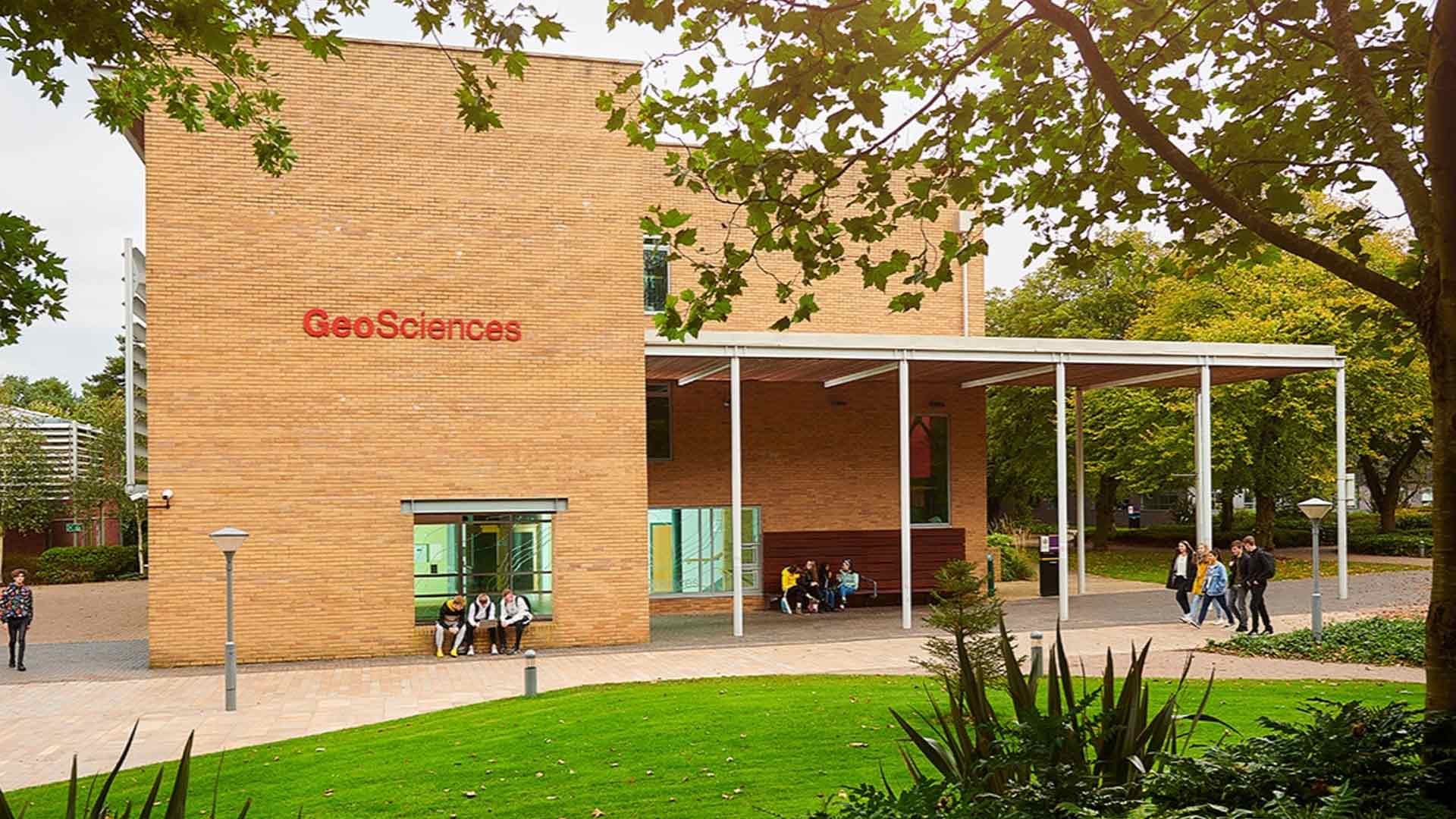 The Department of History, Geography and Social Sciences is based in the Geosciences building. The contemporary facilities combine with a friendly and supportive learning environment to ensure that your studies are a rich and rewarding experience.
The Department of History, Geography and Social Sciences is based in the Geosciences building. The contemporary facilities combine with a friendly and supportive learning environment to ensure that your studies are a rich and rewarding experience.
The Geosciences building features a large lecture theatre, small group teaching rooms, IT facilities and smaller tutorial spaces. There is also a large social area which encourages a more informal and interactive style of learning.
Where you'll study
Finance
Tuition fees
UK Full-Time
£9,535
a year
UK Part-Time
£79 per credit
for 360 credits
International
£17,000
a year
EU/EEA and Swiss students who have settled or pre-settled status under the EU Settlement Scheme, as well as Irish nationals, may be eligible for the UK tuition fee rate.
Financial support
Subject to eligibility, UK students joining this course can apply for a Tuition Fee Loan from the Government to cover the full cost of tuition fees. UK students enrolling on the course may also be eligible to apply for additional funding to help with living costs.
Scholarships
We offer a range of scholarships, which celebrate the determination, commitment and achievement of our students. Many of our scholarships are awarded automatically. There are some however, where you will need to be involved in an application or nomination process. To find out more about our scholarships and check your eligibility, please visit our dedicated scholarships pages.
Money Matters
Please view the relevant Money Matters guide for comprehensive information about the financial support available to eligible UK students.
EU/EEA and Swiss students who have settled or pre-settled status under the EU Settlement Scheme may be eligible to apply for financial support. Irish nationals can ordinarily apply to Student Universal Support Ireland (SUSI). If you are an EU student who does not have settled or pre-settled status, or are an international student from a non-EU country, please see our international student finance pages.
Your future career
One of the great things about our BA (Hons) History degree is that it doesn’t restrict graduates to a single, specific career path. Your knowledge and skills can be applied to a wide choice of different careers. Some of our graduates have gone on to work in:
- teaching
- academic research
- museums
- journalism
- business management
- civil service
- politics
Careers support is built into our history course, from allocating you a Personal Tutor, to providing you with the opportunity to complete our placement-based History in the Making module.
Many of our students go on to further study after their degree. You could study a Masters degree or opt for an MRes focused on a specific research project. We support graduates who want to go into teaching with their PGCE applications. Some of our students have continued right through to PhD level.
Course changes
Every effort has been made to ensure the accuracy of this information, however our courses are subject to ongoing review and development. Changing circumstances may necessitate alteration to, or the cancellation of, courses.
Changes may be necessary to comply with the requirements of professional bodies, revisions to subject benchmarks statements, to keep courses updated and contemporary, or as a result of student feedback. We reserve the right to make variations if we consider such action to be necessary or in the best interests of students.
